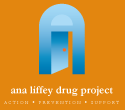Detoxification Programmes
Detoxification is a medically supervised treatment program intended to lessen the physical effects of addictive substances. Patients may be given a course of medication to assist with physical discomfort associated with this and are provided with care to help them to stop their drug and alcohol use. Programmes are normally provided for users of opioids, methadone, alcohol, benzodiazepines or poly drug use. Some patients are undergoing Opioid Substitution Treatment such as methadone or Buprenorphine/Naloxone. Detoxification programmes can be provided on both an inpatient/residential or outpatient /non-residential basis. Some services offer detox as the initial part of a long-term rehabilitation programme.
Inpatient/Residential Detox:
In-patient or residential detox programmes are based in drug treatment facilities. They can also be based in hospitals and general psychiatric wards for those with more complex medical or psychiatric needs. The level of medical support can vary depending on the residential facility and the treatment provided.
Non-residential Detox:
Outpatient or non-residential detox services are provided though health care or addiction treatment facilities over regular sessions where support from doctors, nurses, psychiatrists and other staff may be available. The treatment does not require an overnight stay. Outpatient detox services are available through local HSE addiction clinics and prescribing GPs and this service is referred to as community detox.
Community Detox protocols:
Community Detox protocols have been specifically developed for people who want support to reduce or stop their use of methadone or benzodiazepines, either prescribed or illicitly sourced. This can be a first step for individuals is accessing residential treatment that has maximum methadone level entry dose or a requirement that participants be free from benzodiazepines. It is a structured process operating under a specific model. Detoxification occurs under close medical supervision by a GP with the support of a key worker.









